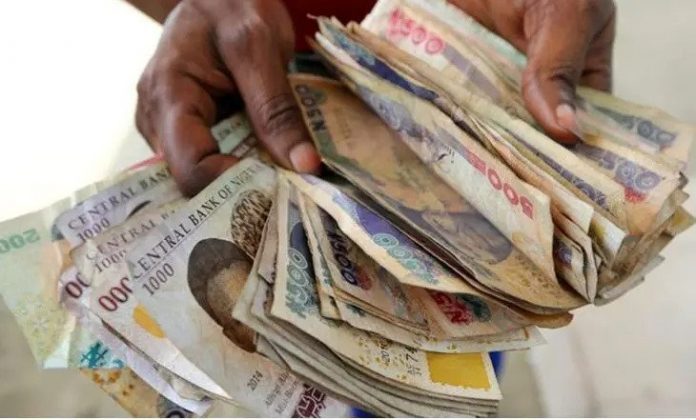According to FMDQ statistics, the Nigerian Naira fell by 7.08% versus the US Dollar at the Investors’ and Exporters’ FX Window, ending at N773.50 after the FTSE Russell reclassified the Nigeria index from frontier to unclassified market status.
FTSE Russell reduced the Nigeria index to unclassified category in a statement, citing the failure of the currency reform to boost the US dollar flow or repatriation outside. Following the central bank’s decision to manage the float rate regime, there is still a significant unresolved FX backlog.
The acting governor of the Central Bank of Nigeria (CBN) briefed a meeting last week about the monetary authority’s strategy to clear the $2.5 billion foreign currency backlog in two weeks.
Consequently, the balance in the gross external reserves dropped successively as the market views the process had begun. As a result of the positive sentiment, the local currency gained strong to close at N722, though the parallel market rate worsened due to spurious demand for invisible users.
In a notice, FTSE Russell said further to the ‘FTSE Equity Country Classification – Watch List Status of Nigeria’ announcement published on 30 June 2023, it has received feedback from market participants.
“Although Nigeria has adopted a floating foreign exchange (FX) rate for the Nigerian Naira in the Investors’ & Exporters’ (I&E) FX Window, which is now operating on a “Willing Buyer, Willing Seller” basis, the lack of liquidity in the I&E FX Window continues to adversely impact the ability of international institutional to replicate benchmark changes”.
The report said that index changes for Nigeria within FTSE Russell equity indices have been suspended since September 2022 with no improvement in the ability of international institutional investors to repatriate capital at a foreign exchange rate that would be used in FTSE Russell equity indice.
Following ratification by the Governance Board, FTSE Russell announced that the FTSE Equity Country Classification status of Nigeria will be downgraded from Frontier to Unclassified market status.
It added that Nigerian index constituents would be deleted at zero value (0.0001 NGN) from the following FTSE Russell equity indices, effective from the open on Monday 18 September 2023.
“FTSE/MV Exchange Index Nigeria will be retained in the FTSE ASEA Pan Africa Index Series, with the implementation of certain corporate events suspended until further notice”, according to the statement.
FTSE Russell said it will continue monitoring Nigeria and once the foreign currency delays are cleared for a period of time, Nigeria will be assessed as a new market in accordance with the FTSE Equity Country Classification Process.
“This process will follow the standard FTSE Equity Country Classification procedure and timetable for a new market, with Nigeria required to spend a period of time on the Watch List before it is readmitted as an eligible market for the FTSE Russell equity indices”, the statement reads.
The local currency depreciated by 7.08 per cent from N736.62 it exchanged for the dollar on Sept. 8. The open indicative rate closed at N771.49 to the Dollar on Monday.
Data from FX market showed that a spot exchange rate of N804.15 to the US dollar was the highest rate recorded within the day’s trading before it settled at N773.50. The naira sold for as low as N722.39 per greenback requested within the day’s trading. A total of 37.86 million dollars was traded at the investors and exporters window on Monday












